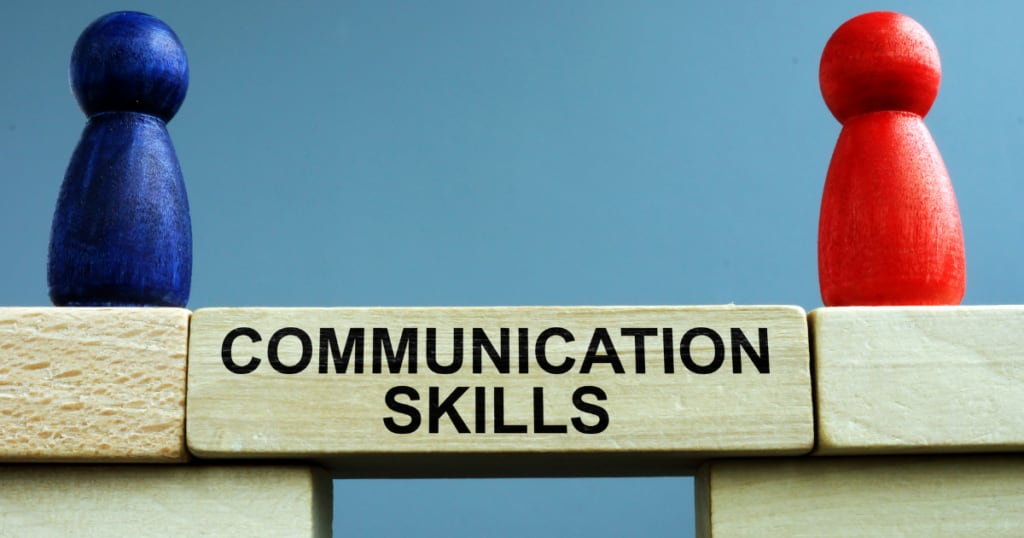“The age when silence is considered an indication of wisdom is over. This is an age of the people, an age of Communication Skills dialogue, a time when people must share their opinions and thoroughly discuss things.” (Stearns, pp. 8 & 9)
For decades, schools placed immense importance on reading, writing, and the ability to express one’s thoughts verbally. As schools strive to better prepare students for a rapidly changing future, educators now realize the importance of communication skills to meet the demands and challenges in the twenty-first century.
As public schools in the United States struggle with behavioral issues amongst an increasingly diverse population of students, many schools have incorporated a social-emotional learning curriculum, utilizing communication skills activities such as the morning meeting. According to Kriete and Davis, in a 30-minute morning meeting, students have an opportunity to greet one another, share notable events with their peers, participate in a lively yet brief activity to create cohesion in the classroom, and read and interact with a written message from their teacher. The morning meetings are students’ opportunity to develop their group discussion skills with their peers daily, listening and taking turns speaking.
Communication, particularly interpersonal communication is a valued skill in the service industry. The ability to listen to customers and build relationships create successful business relationships. Additionally, communication is needed to receive feedback on products and services to continue improving them and hence furthering building the relationship with customers.
There are several important communications skills that are recognized: active listening, non-verbal, verbal, conflict resolution and building relationships. These communication skills are also to be considered soft skills which are now being recognized as important skills.
Highly developed communication skills are also necessary in professions such as medicine, social work, and law enforcement. The ability to not be influenced by bias or emotions while obtaining necessary information to resolve problems or assist others is essential in these professions. Being able to express oneself concisely and clearly is necessary to act quickly in some situations in providing aid to varied and diverse populations.
What are the five top communications skills and how does one improve those skills? Depending on the source, the skills may vary; however, most sources highlight soft skills which are essential for effective communication: listening, verbal, non-verbal, conflict resolution and relationship building. Each of these communication skills are equally important, like the threads that are interwoven into a bolt of cloth.
Active Listening Skills
One way of improving listening skills is to convey non-verbally that you are in fact listening to the speaker. One would look at the speaker and give his/her undivided attention. One may also envision or imagine what the speaker is talking about to understand what the speaker is communicating. Having an open mind as well helps as one will be able to listen without being tempted to interrupt or interject opposing opinions.
Verbal Communication Skills
To improve one’s verbal skills, it is a good habit to think before you speak. Organizing your thoughts will help one with the smooth delivery of concepts and ideas. Using clear and concise language is helpful. One’s ideas and thoughts can easily be lost or obscured in a long verbose monologue. Speaking confidently and in a varied tone is important too to engage your audience.
Non-Verbal Communication
To be aware of non-verbal communication, one must be present and aware as you are communicating with others. According to Jordan Lansley, “Body language (also known as Kinesics) is a method of nonverbal communication used by humans and many animals as a form of signaling, expressing, and conveying information to others.” body language has a way of conveying what the speaker feels internally despite what he or she may be expressing verbally. Some professions rely on this type of communication to determine if a person may be lying.

Conflict Resolution
Conflicts and disagreements are bound to arise as people interact with one another. The key to conflict resolution is to find a solution to the disagreement or dispute while not giving into emotions. To improve this skill, it is necessary to have empathy for the other person or people involved while remaining in control of one’s emotions.
Relationship Building
Building relationships is creating trust with others. To build relationships in turn requires communication. It is a process of continually communication, dialogue, creating rapport and resolving disagreements as they arise. Additionally, being able to read nonverbal cues to sense what the other is really feeling is helpful as well. Krashen’s Affective Filter Hypothesis states that individuals will form a mental block that slows down language learning. While one may be speaking in their primary language, the ability to communicate and be understood may be more likely when there is a low anxiety relationship between the people communicating.
As technology continues to advance in the Information Age, effective communication increasingly becomes more important on a global scale. Ikeda states:
Conversation, dialogue, is indeed the essence of democracy. Without openhearted dialogue, the human spirit stops growing and withers away. Without intellectual and spiritual exchange, society rigidifies and grinds to a halt.
As people of diverse backgrounds and opinions come together, communication skills will be needed to resolve conflicts between countries and to resolve global challenges and issues that we face today.

Kini Paddock is an Administrative Coordinator at Shiminly. She has a master’s degree in Education from the University of Southern California. She taught in the US and English in Jiaxian, Henan, China for three years.
Stearns, P. (2019). Peace Building through Dialogue. Fairfax, VA: George Mason University.
Kriete, R, Davis C (2019). The Morning Meeting Book. Turner Falls, MA: Center for Responsive Schools
Lansley, J. Body Language. https://www.eiagroup.com/knowledge/body-language
Krashen, S (1982). Principles and practice in second language acquisition. Alemany Press.








































